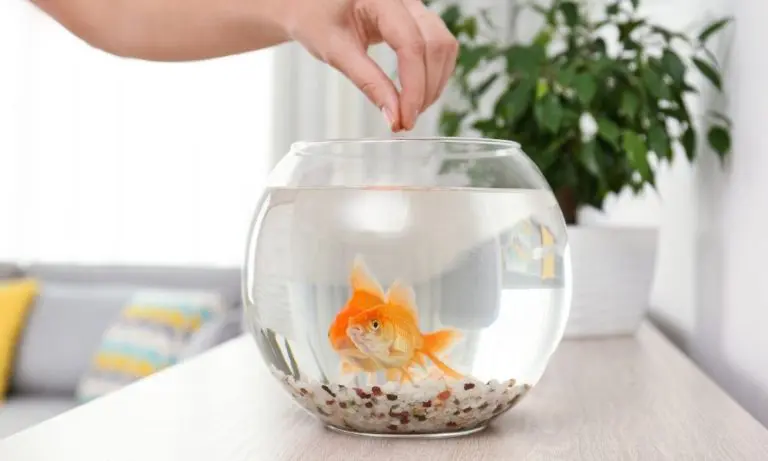Everything You Need To Know About Anxiety In Cats

In today’s times, anxiety has become a very serious issue, not just among humans but also among animals. Anxiety is capable of causing serious emotional distress in cats which can easily lead to medical problems later on.
As a pet owner, you need to understand what your cat is going through and how to manage your cat’s anxiety and stop it from coming back. Read on to find out more about the issue.
What do you understand by Anxiety in Cats?
Cats are very sensitive creatives that can easily become anxious because of the things going around in their environment. Anxiety refers to the feeling of uneasiness and fear that creeps in during any unfamiliar situation. Cats are very much capable of experiencing anxiety.
When your cat starts going through a rough phase, since they are incapable of expressing their emotions, it can be easily interpreted as bad behavior. You need to first understand whether your cat is just acting out, or going through something else underneath.
Start by noticing exactly when and what kind of signs your cat shows which indicate a certain problem. Anxiety in cats can be triggered by very specific events or any kind of changes in the routine environment. Getting to the root of the problem can help you understand how to deal with it and ways to calm your pet.
Symptoms
There are numerous different ways in which anxiety can manifest. Sometimes the symptoms are not that easily noticeable. You should keep in mind to check for signs like change in behavior among other things.
Some of the common signs of anxiety can be as follows;
· Aggressive behavior
· Urinating outside the litter box
· Hair loss
· Trembling
· Decrease in appetite
· Frequent hiding
· Excessive meowing
· Sudden and constant need for interaction
· Withdrawal
· Unresponsiveness
· Reluctance
· Repeated pacing
The above-mentioned signs are behavioral. But sometimes, anxiety can get severe and the signs can be more physical like;
· Vomiting
· Runny eyes and nose
· Bald patches
· Very poor coat condition
· Acting out
· Weak immunity system
· Excessive weight loss or gain
· Painful or bloody urination
Apart from the above behavioral and physical signs, cats can also exhibit signs which can be a clear indication of their stress, which are as follows;
· Crouching and looking tense
· Twitching their back skin
· Frequently grooming themselves and stopping abruptly
· Quick flicks of their tongue on the nose
· Constant head shaking
· Dilated pupils
· Having glazed expressions
Anxiety also triggers several medical conditions, particularly Upper Respiratory Infections (URIs) and Feline Lower Urinary Tract Disease (FLUTD), so you should always be on a lookout for related symptoms like increased frequency of urination, congestion, and sneezing which can help you identify these dangerous diseases so that you can consult a vet and get your cat treated.
Reasons of Anxiety
Pets are also individuals. Usually, cats appear to be laid back and unflappable, but some cats have a very sensitive nature which can be a cause for their stress.
New home
When you move into a new home, cats can take a considerable amount of time to adjust to a new environment. This can prove to be a very stressful time for your pet.
Cats are said to be creatures that like to live in familiar environments because it helps them feel secure and. Being at a new place gives them a feeling of uneasiness which can easily trigger their anxiety.
Unsuitable Handling
Every cat is different. While some may like to be stroked for a longer period, others at the same time can find such stroking uncomfortable and difficult to handle.
Cats have protective nails which they use only when there is something uncomfortable going around them. Your cat will communicate when they like you stroking them and can also signal you to stop. You must understand and maintain a good communication level.
Frequent Routine Changes
If you have a cat then it is suggested that you form a routine and stick to it because cats become sensitive to their owner’s routine and get attached to it over time.
Cats are not very good at handling uncertainty or unpredictable behaviors. It can lead to a lot of stress for them. It is suggested that even if you bring about changes in your routine, then also you should try to maintain very predictable and consistent interactions with your cat so that they don’t feel threatened.
Issues with waste excretion
Cats have very sensitive noses. Urinary problems can be very stressful for cats. Cats tend to hate the smell of their waste so much that they try their best to hide it. Make sure you provide them with cat litter. There are various cat litters available; one such litter is the tofu cat litter that is not only effective but also environmentally sustainable.
If your cat is having issues with its waste excretion like discoloration, inconsistency, and painful process, it indicates that your cat is going through a tough time and it needs help.
Presence of other cats
If there are any unneutered stray cats in your neighborhood, then your cat can become very aggressive. Just having these cats around can be very stressful for your pet.
Unneutered stray cats tend to carry various diseases which they are highly likely to pass on to other cats. Relocating such a cat to a different environment can be helpful for your cat’s stress levels and it also helps reduce anxiety.
Treatment
Some techniques can help ease your cat’s anxiety levels. Talking to a professional might be a good idea. Making some adequate changes to your cat’s environment and also getting anti-anxiety medication can be some of the ways to deal with your cat’s issues.
You should also keep in mind that being consistent with your cat’s food can be good because it helps calm their nerves. If cats get the same kind of food, then they feel comfortable.
Similarly, if your cat’s litter box stays clean and hygienic then it assures them during trying times and helps them get through it. make sure the litter box is always placed appropriately, as it gives a feeling of reassurance to cats.
Conclusion
You must provide a safe space for your cat. Anxiety can be easily triggered not just in humans but also in animals. You should stay patient if your pet starts acting out because there could be an underlying reason for such behavior.
There are always ways that you can adapt in your behavioral pattern which can bring comfort to your pet and if nothing works then consulting a vet about the anxiety in cats can go a long way in helping your cat feel better.









